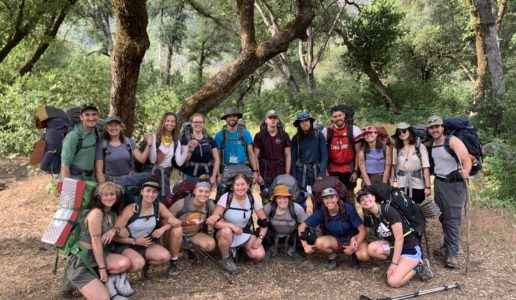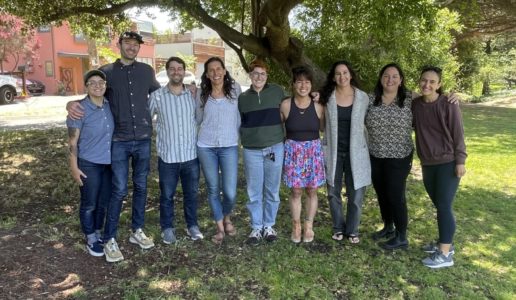Disconnect to Connect | Monday Musings
 “We can’t become fully human until we learn to look into other people’s eyes,” writes Bruce Feiler in the recent New York Times article, “Hey Kids, Look at Me When We’re Talking” (link below). This sentiment underscores a significant and positive adjustment Tawonga campers will feel this summer: a camp experience free from digital screens.
“We can’t become fully human until we learn to look into other people’s eyes,” writes Bruce Feiler in the recent New York Times article, “Hey Kids, Look at Me When We’re Talking” (link below). This sentiment underscores a significant and positive adjustment Tawonga campers will feel this summer: a camp experience free from digital screens.
This article reminds us all yet again how the excessive use of technology by children and adolescents (7.5 hours a day of media use for 8-18 year olds) can stunt their social and emotional skill development. Feiler cites a recent study out of UCLA and the Children’s Digital Media Center revealing that children were “significantly better at reading nonverbal emotional cues” after spending five screen-free days at an overnight camp. Imagine what three weeks could do…
At Camp Tawonga, we care deeply that children develop socially, emotionally, and spiritually – while having fun, building confidence, and making lifelong friendships. Reducing the presence of digital devices at camp will help to continue facilitating a genuine, holistic camp experience where summer after summer, kids express finding themselves and their home away from home.
We recognize that technology offers tremendous convenience and utility, but at Tawonga, part of our immersive, group-focused approach that makes camp so special is experiencing cooperative living together without the luxuries of technology at our fingertips (which will be waiting for us the moment we get home!).
We wake up to a chiming bell every morning, so no alarm clock is needed. We read books with real flashlights in our sleeping bags at night. We sing and dance during song session after meals. We explore Yosemite National Park on overnight backpacking trips and let our creative minds wander!
At camp, we disconnect so that we can connect.
We will be sharing more information on our Screen-Free policy soon with parents of currently registered campers.
p.s Read the NYT article here.
Camp Tawonga Monday Musings: where we connect broader ideas and themes to camp, and specifically, to the “Tawonga Way” of living, learning, and treating others.

